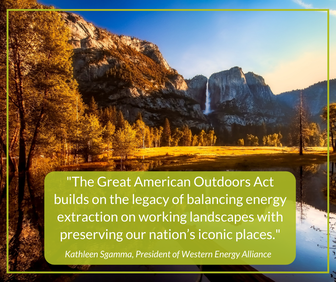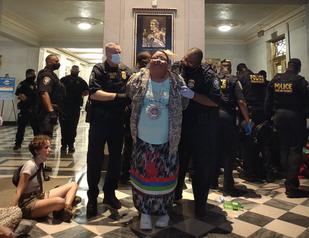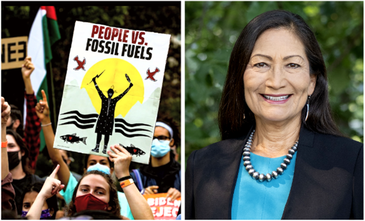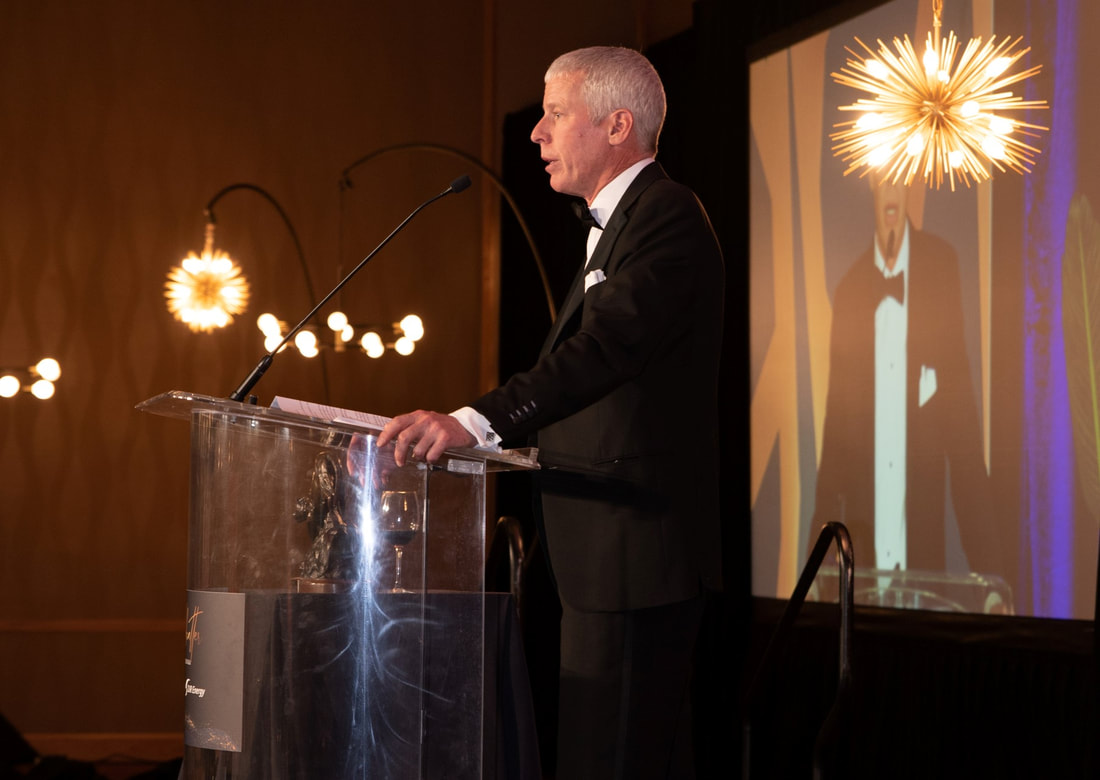 The three-year anniversary of the Great American Outdoors Act (GAOA) is a good time to reflect on all the conservation and infrastructure benefits that have come from the $8.4 billion in funding and consider improvements that can be made to the law. We’re proud that 96% of GAOA’s funding comes from onshore and offshore oil and natural gas royalties. The hundreds of projects funded so far show the balance that can be achieved in managing our nation’s public lands.
0 Comments
 There’s a good reason people feel they can’t get a straight answer out of Washington on climate and environmental issues. Recent conflicting news stories about natural gas are good examples as to why. While Biden officials and some lawmakers are attempting to scare consumers into believing they’re damaging the environment by using natural gas when cooking dinner or taking a hot shower, their rhetoric is undercut by their effusive praise at other times for natural gas’s climate benefits. In an easily overlooked announcement made far away from Washington, the U.S. Department of Transportation’s Federal Highway Administration (FHWA) and the National Park Service (NPS) touted the addition of a fleet of natural gas and electric buses to transport tourists around Grand Canyon National Park. The fleet consists of 20 compressed natural gas (CNG) buses and 10 battery electric buses. The focus of the announcement was on the climate benefits of the new buses.
“The legislative body of the Navajo Nation Council and I are unified in our opposition to the ten-mile buffer. The withdrawal was done without meaningful consultation and fails to honor the Navajo Nation sovereignty. Respect for tribal sovereignty must be consistent, even when it is not convenient. The nation offered a compromise that honored Navajo sovereignty and the rights of our allottees, but that was rejected with inadequate explanation from the administration.”
No sooner had I submitted our comments opposing the Department of Energy’s (DOE) energy conservation standards for cooking products, then this gem came across my desk from the Ninth Circuit Court of Appeals. It relates to the very same law, the Energy Policy and Conservation Act (EPCA), that governs the DOE rule. I would have liked to refer to the ruling, but then again, it doesn’t matter, since it dropped from California just at the close of business deadline on the East Coast. The timing is quite delicious, as the proposed rule seeks to underhandedly ban natural gas stoves, likewise in violation of EPCA.
The ruling overturns the City of Berkley’s ban on natural gas hookups because the ordinance violates EPCA’s federal pre-emption of state and local laws regarding the energy use of natural gas appliances. “The Act expressly preempts State and local regulations concerning the energy use of many natural gas appliances, including those used in household and restaurant kitchens. Instead of directly banning those appliances in new buildings, Berkeley took a more circuitous route to the same result and enacted a building code that prohibits natural gas piping into those buildings, rendering the gas appliances useless.” This week, lawmakers in Congress are stepping up to address high gasoline and home energy prices after two years of the Biden administration’s unnecessary interference with energy markets.
Consumers have been burdened by policies such as increasing taxes and red tape on American energy production that have compounded high energy prices. We’re pleased to see the U.S. House of Representatives is working to pass a broad energy package this week that will allow oil and natural gas producers to once again meet the growing needs of consumers and reduce energy inflation. In contrast to President Biden’s policies that have restricted American oil and natural gas production in Colorado and other western states, the Lower Energy Costs Act (H.R. 1) will restore certainty on federal lands. The bill would remove several significant cost increases and barriers that were implemented last year in the Inflation Reduction Act (IRA) that fulfilled the president’s promise of “no federal oil.” The bill would restore regularity in leasing and permitting to ensure that federal production, which normally constitutes about a quarter of our country’s total, resumes at appropriate levels.
When asked about coordination that’s taken place behind the scenes between Sec. Haaland and her daughter, agency officials have repeatedly refused to comment.
 Recently the federal watchdog group Protect the People’s Trust released open records documents showing the Interior Secretary had alarming connections with organizers of a violent protest in 2021 at the department. The group found that Interior Secretary Deb Haaland’s own daughter was one of the organizers. On October 14, 2021, a protest at Interior headquarters in D.C. featured rallies of indigenous people opposed to leasing around the Chaco Culture National Historical Park. Protesters breached the building, handcuffed themselves in place, and staged a sit-in. When security personnel attempted to remove the protesters, things turned violent. Multiple police officers were injured and 55 protesters were arrested. Climate Reporters Push Prohibition of Oil and Natural Gas Voices A leading group of climate journalists is campaigning in 2023 to weaponize claims of “disinformation” and bar voices supporting oil and natural gas from news stories. Ironically, based on their own standards these reporters are advancing disinformation of their own. The Society of Environmental Journalists (SEJ), an association of 1,400 reporters that’s funded in large part by billion-dollar, anti-fossil fuel philanthropies, recently kicked off a campaign to promote its “2023 Journalists’ Guide to Energy & Environment.” As an extension of the campaign, SEJ and its leaders are pushing reporters across the country to exclude views that run counter to theirs in climate stories. The following highlights several recent comments by SEJ leadership and its members.
"Two Things Changed Everything: Human Liberty and Energy from Hydrocarbons," Remarks by Chris Wright11/15/2022
Thank you for this flattering and humbling recognition.
What else I am thankful for is THIS, and what I mean by “this” is actually quite a lot. History shows that for nearly everyone, every year, every season, every day was an uncertain struggle to survive. Humans were far smaller just a few generations ago, not because their genetics were any different, but because they simply lived in a constant state of malnutrition kicking starvation down the road one day at a time. |
Archives
June 2024
Categories |




 RSS Feed
RSS Feed